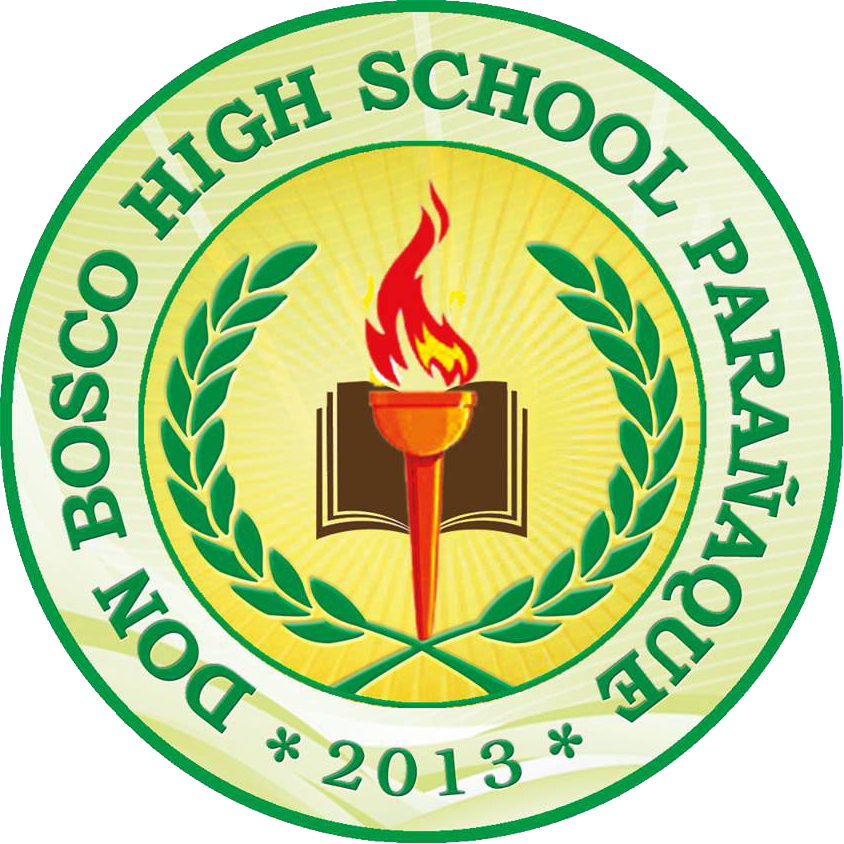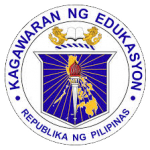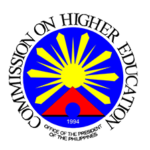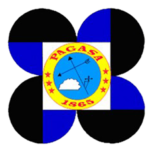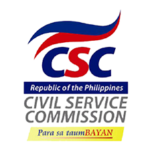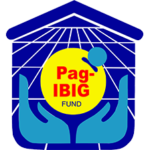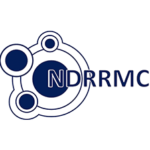A. ACADEMIC
JUNIOR HIGH SCHOOL

a. Regular Program
Junior High School Program comprises of Grade 7 to 10. They are students who complete elementary education in any Deped institution and undertake Junior High School curriculum. They have core subjects such as Filipino, English, Mathematics, Science, Edukasyon sa Pagpapakatao (ESP), Music, Arts, Physical Education and Health (MAPEH), and technology and Livelihood Education (TLE).
b. Science, Technology and Engineering Program (STEP)
The STE Program is a special program which shall lay the foundation for a career and/or support to a career for learners with interest and aptitude in Science, Technology and Engineering.
As one of the schools offering the Program, add-on subjects in Science and Mathematics were offered on top of the requirements of the core curriculum and the special curricular program in science and technology.
c. Open High School Program (OHSP)
The school offers Open High School Program, an alternative mode of delivering secondary education for both public and private schools. The program offers an opportunity to those who desire to complete the high school curriculum outside of the formal school structure.
SENIOR HIGH SCHOOL

a. General Academic Strand (GAS)
GAS is one of the four strands of the Academic Track for Senior High School. It is designed for students who are not decided yet on what course they want to take in college. In this strand, students can choose from the electives of the different tracks such as Applied Economics, Organization and Management, Humanities, Social Sciences, and Disaster Preparedness.
b. Technical-Vocational-Livelihood Track (TVL)
The senior high school TVL track is designed for students who wish to start working right after they graduate from senior high school. These vocational courses give students the skills and knowledge they need to get the certifications necessary for work. The TVL track is ideal for those who intend to work abroad as skilled workers.
The TVL track gives senior high school students access to vocational courses, as not all students want to or can afford to go to college after senior high school.
ALS (ALTERNATIVE LEARNING SYSTEM)

The school provides ALS program to give opportunities for out-of-school children in special cases and adult learners, to develop basic and functional literacy and life skills, and pursue an equivalent pathway to complete basic education.
B. DIVISION INITIATED PROGRAMS
QUIPPER SCHOOL
Quipper School is an e-learning service provider that has been helping DepEd in advancing the learning level of the students through tools employing information and communications technology. Quipper School as initiated by the Schools Division has helped teachers use in teaching and learning activities, such as creating classes, sending assignments, and exploring material. It has been implemented in the Grades 11 and 12 (senior high-school) curricula.
TECHNOKIDS

TechnoKids curriculum is an advanced IT curriculum that contains teaching ideas, projects and set of activities with the use of the computers. As one of the schools selected to implement this IT curriculum, Don Bosco High School teachers are continuing to find a way to augment the learning of every student in terms of advanced technology.
C. INTERVENTION PROGRAMS
PROJECT LEARN: LEARNER'S ENRICHMENT ACTIVITIES FOR READERS AND NON-READERS
This is created to provide clear direction in the implementation of the school-based reading program and activities in the new normal which develops the learners’ ability and skills in reading through various activities; and guides the learners’ capability in reading through blended learning (online platform & modular approach).
PROJECT MODULE LEGENDS: AN LMS FOR GEN-Z DON BOSCO HIGH SCHOOL PARANAQUE LEARNERS
Project MODULE LEGENDS (LEarners GEN-Z Don Bosco Students) LMS is an online and offline education platform, a customized Learning Management System based on Moodle, designed for Junior High School students at Don Bosco High School Parañaque to meet the need for Online Distance Learning Education during the COVID19 pandemic initiated by the DBHSP ICT Coordinator, Ms. Agnes Christy C. Gonzales together with the School Head Dr. Eduardo M. Taguiam. This is very timely and important, especially in the public education sector, where face-to-face classes have been suspended to protect students from contracting the chronic disease caused by the pandemic. With the use of Self-Learning Modules, the DepEd Community devised ways and means to reach students while they are at home.
C. INTERVENTION PROGRAMS
ECO-SAVERS PROGRAM
The Ecosavers Program is a recycling campaign participated by the students in a bid to reduce garbage from schools and households through the establishment of an ecological solid waste recovery system in every school. It is one of the DepEd programs tapped to educate the students on the importance of environmental conservation and protection as it relates to sustainable development.
YES-O PROGRAM
DepEd, in partnership with the Department of Environment and Natural Resources (DENR), establishes the Youth for Environment in Schools Organization (Yes-O) as the only recognized co-curricular environmental club or organization in the schools and consolidates all other environmental and/or ecology clubs or organizations in school with main and primary programs or projects for the environment or ecology in the said Organization.
The following programs, projects and activities may form part of the regular undertaking of the Youth for Environment in Schools (YES) Organization:
· Clean-Up Drive inside and surrounding the school premises, including common areas in the community
· Waste Management, Segregation and Recycling Program
· Awareness Campaigns to Address Specific Issues such as Pollution, Sanitation and Health
· Nursery Establishment and Tree-Planting Activities
SCHOOL-BASED FEEDING PROGRAM (SBFP)
The SBFP consist of the provision of Nutritious Food Products (NFP) aims to address hunger and encourage learners to enroll; contribute to the improvement of their nutritional status; provide nourishment for their growth and development and help boost their immune system, and enhance and improve their health and nutrition values.
It also aims to improve school attendance and the nutritional status of target beneficiaries, to conduct group hand washing and tooth brushing activities, and to encourage backyard vegetable gardening to support the feeding program. The target beneficiaries are all either wasted or severely wasted Grade 7 students in public educational institutions who were evaluated by nutritional assessment.
GULAYAN SA PAARALAN PROGRAM (GPP)
Gulayan sa Paaralan Program (GPP) through DepEd Memorandum No. 293, s. 2007. was launched in partnership with the Department of Agriculture to promote the value of school gardening as contribution to the feeding program and raise awareness to have a locally grown vegetables and crops that will benefit the community.
The Department of Education (DepEd), under its core value Makakalikasan, supports the national government’s efforts in protecting and conserving the environment through the National Greening Program.
SCHOOL DISASTER RISK REDUCTION AND MANAGEMENT (SDRRM)
DepEd has created the Comprehensive DRRM in Basic Education Framework, which underscores the following three pillars or areas of focus: 1) Safe Learning Facilities; 2) School Disaster Management; 3) DRR in Education.
With the issuance of a policy (DO 37 s 2015), this Framework is expected to guide schools in assessing, planning and implementing their specific prevention and mitigation, preparedness, response and recovery and rehabilitation.
BRIGADA ESKWELA (BE)
Brigada Eskwela or the National Schools Maintenance Week is a nationwide initiative by the Department of Education (DepEd) that mobilizes thousands of parents, alumni, civic groups, local businesses, non-government organizations, teachers, students, and individuals who volunteer their time and skills to do repairs, maintenance work, and clean-up of public elementary and secondary schools.
Every public school kicks-off Brigada Eskwela in preparation for the opening classes in June. This annual activity which popularly known as the “Bayanihan Para sa Paaralan (Working Together for Schools)” showcases the meaning to the Filipino concept of unity.
D. CLUBS AND ORGANIZATION
SUPREME STUDENT GOVERNMENT (SSG)
The Supreme Student Government endeavors to develop the leadership skills and qualities of all student leaders within its scope and jurisdiction. It strives to make the students aware of their basic rights as students and as a citizen of this country and the benefits and privileges that they ought to get or they are entitled as students of this school.
In general, the Supreme Student Government aims to influence and mold student leaders as well as mere students to be vigilant and active citizens in their respective community and to the country as a whole–that they will positively take part, and not to be passive in addressing problems and issues that substantially affects their community and our country as a whole.
BOY SCOUT OF THE PHILLIPPINES (BSP)


The Boy Scouts of the Philippines (BSP) is the national scouting association of the Philippines in the World Organization of the Scout Movement.
With its subsequent amendments under Presidential Decree No. 460 and Republic Act No. 7278, the Boy Scouts of the Philippines continues to strive in pursuing its mission – to inculcate in our Scouts love of God, country and fellowmen; to prepare the youth for responsible leadership; and to contribute to nation-building according to the ideals, principles and programs of Scouting.
Its main objective is to contribute to the development of young boys in developing full physical, intellectual, social and spiritual potentials as individuals and as responsible citizens.
GIRL SCOUT OF THE PHILLIPPINES (GSP)

The Girl Scouting Program is the action plan covering the whole Girl Scouting environment of fun, adventure and challenges where girls working alone or in small groups live the Girl Scout Promise in a democratic framework and develop themselves in self-reliance, self-esteem and service with the guidance of able and caring adults. It is a worldwide movement for girls and young women, aged 4 to 21 years old, that provide a non-formal educational program based on character development and the ideals of service.
CAMPUS JOURNALISM
Republic Act No. 7079, otherwise known as the Campus Journalism Act of 1991, was enacted on July 5, 1991 to supposedly uphold and protect the freedom of the press at the campus level and to promote the development and growth of campus journalism, as stated in its declaration of policies
Campus journalism gives student journalists the opportunity to practice their craft and share their thoughts and insights about certain issues. It helps students improve technical skills in journalism and understand and practice the responsibilities of a journalist, learn how to be responsible, and promote social awareness.
Student publications serves as a venue for students so their message can reach the proper school authorities.
DON BOSCO HSP CHOIR / KORO DON BOSCO
The Koro Don Bosco headed by their conductress and adviser, Ms. Agnes Christy C. Gonzales, is the organization or club for students who has talents is musical instruments and in singing to cater the needs of the school for different parts of the programs like doxology, national anthem, intermission and rendering talents and skills for the monthly eucharistic mass. They are also the frontlners for different competition for divisional, regional, or national contest in terms of art in music.
SOCIAL MEDIA
CONNECT WITH US
- pnhsdb.pque@deped.gov.ph
- 320205@deped.gov.ph
- ict-320205@ncr1.deped.gov.ph
- Don Bosco HSP FB Page
- (63) 966 713 7245
- (63) 956 837 7689
- (08) 718-12-20 (Principal's Office)
- (08) 718-09-65 (District 9 PSDS Office)
OUR LOCATION
Designed, Developed and Maintained by the ICT Coordinator, Ms. Agnes Christy C. Gonzales
